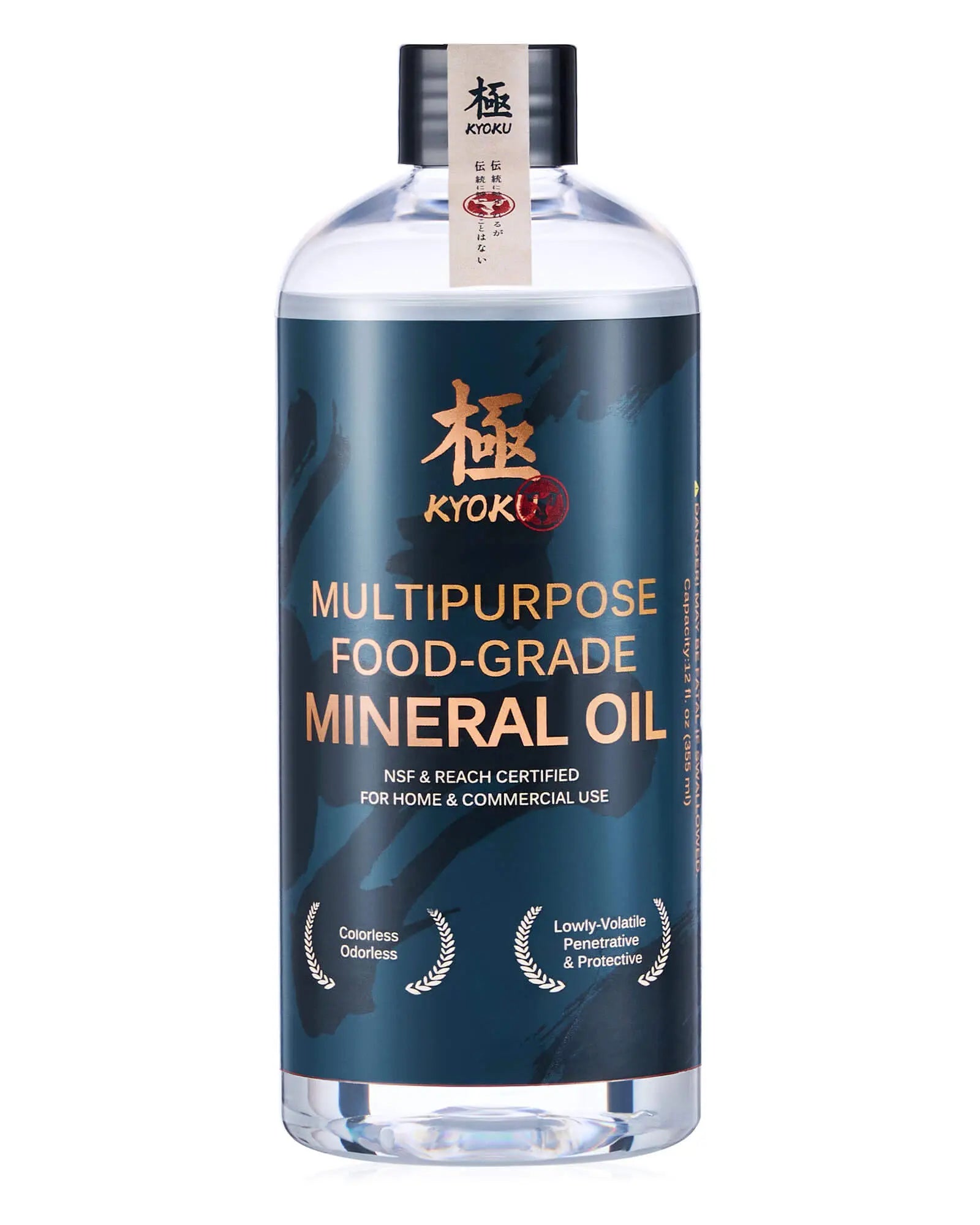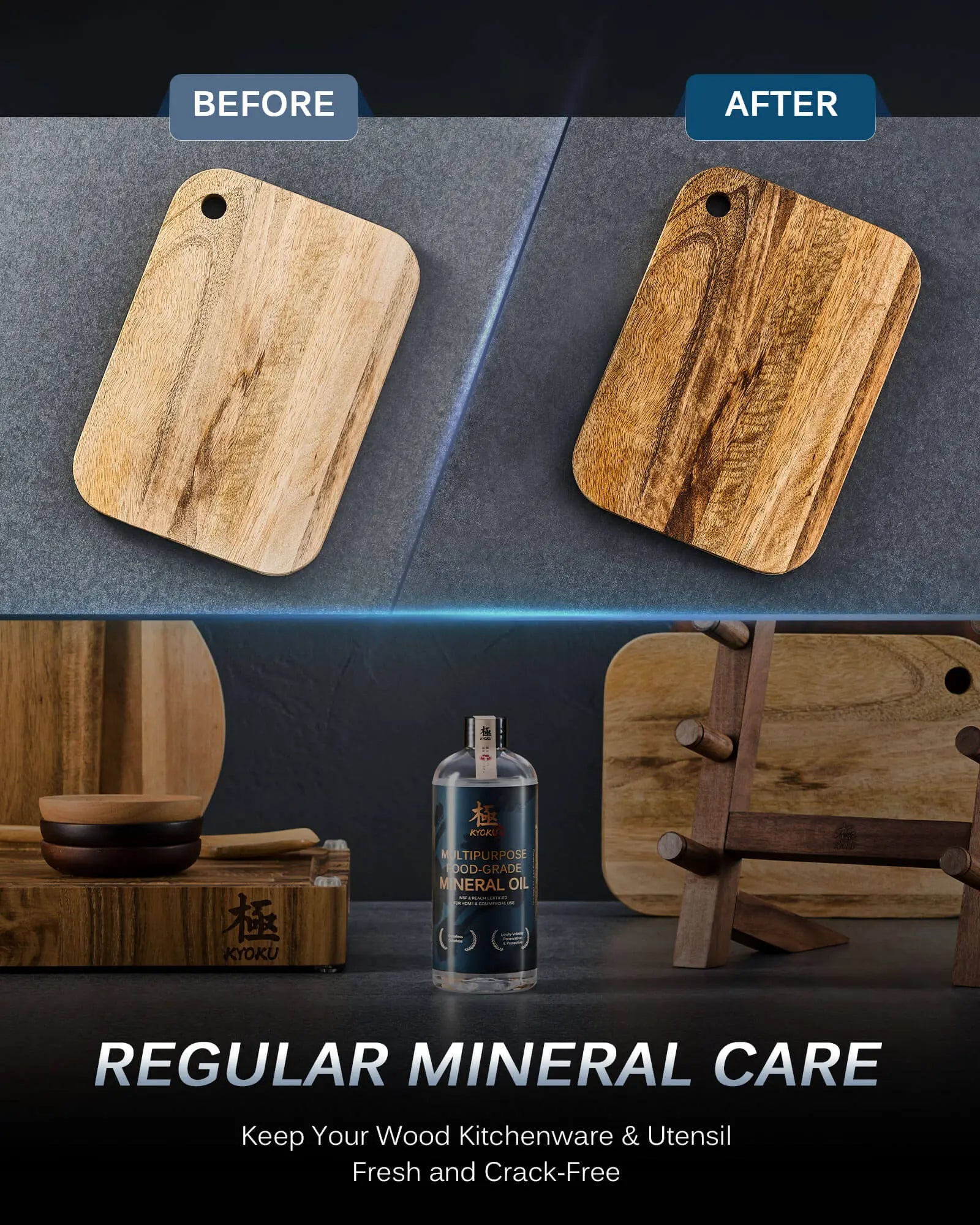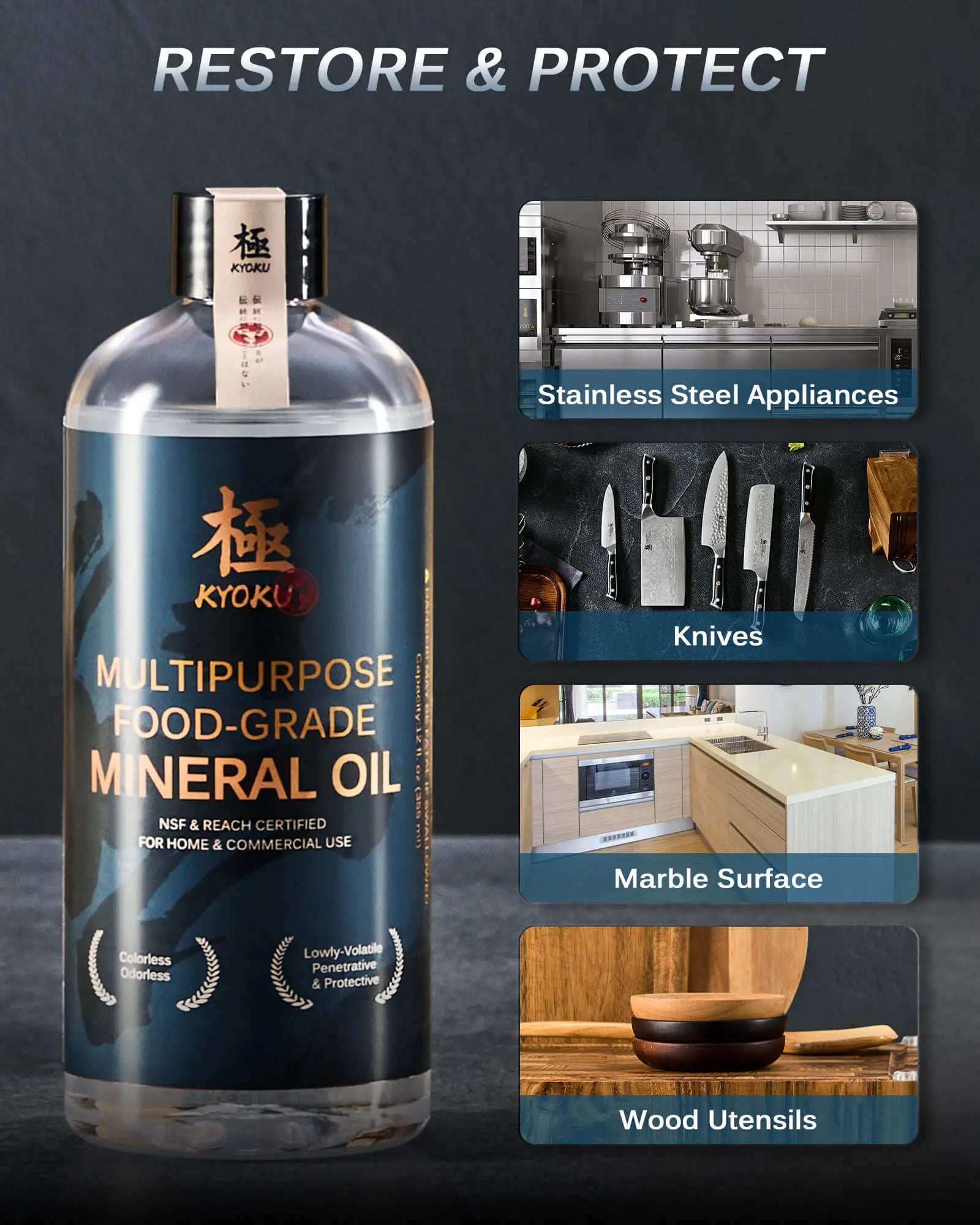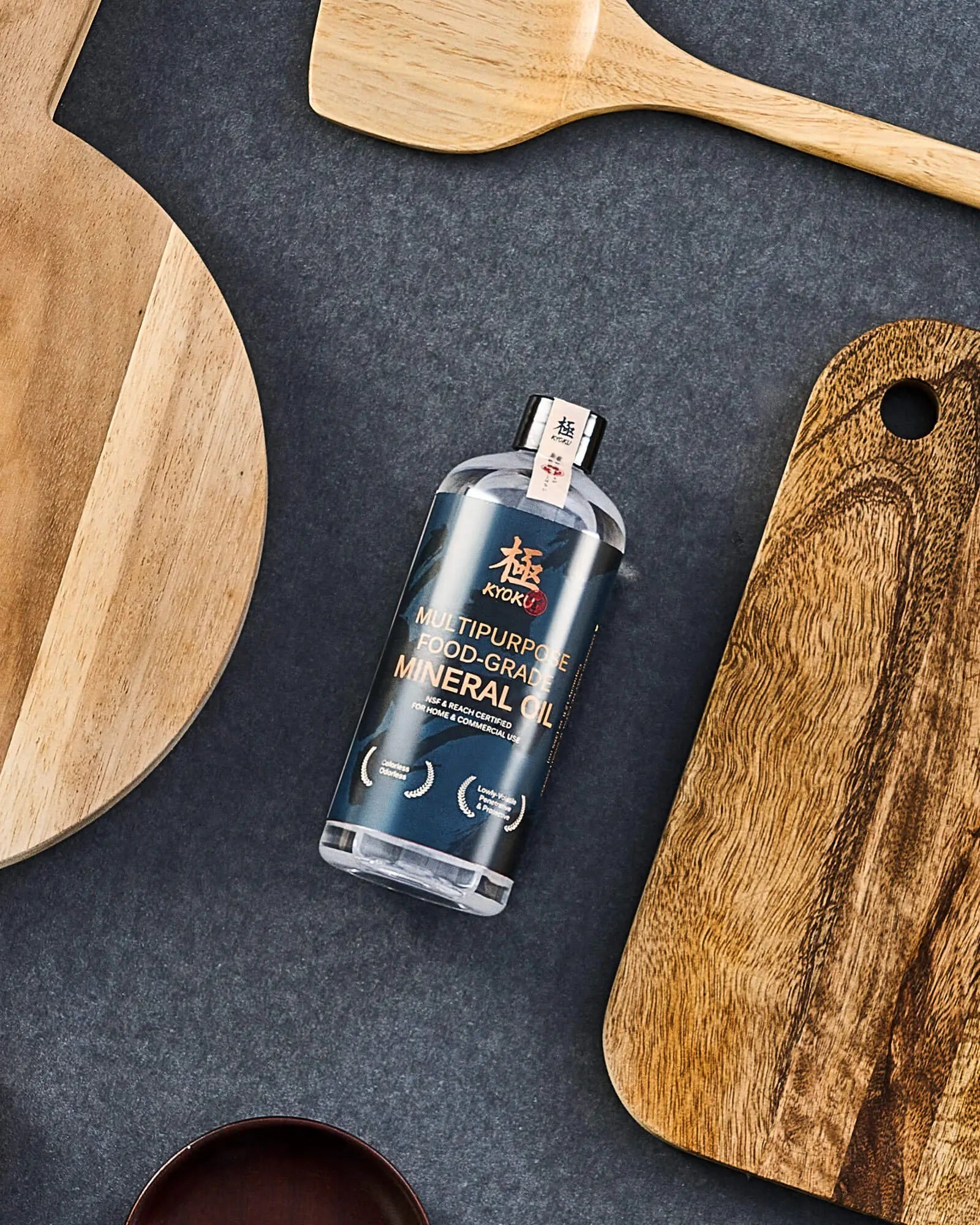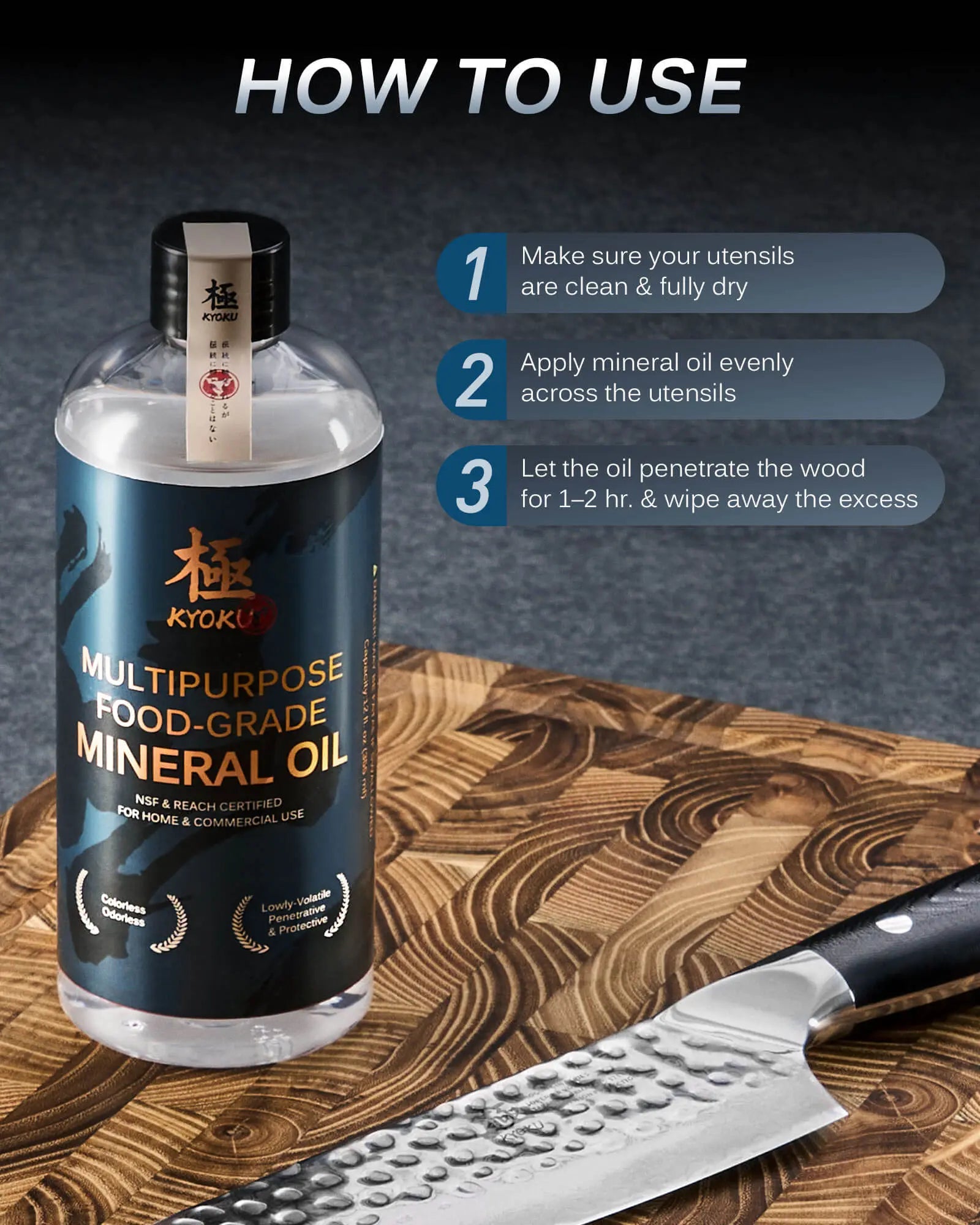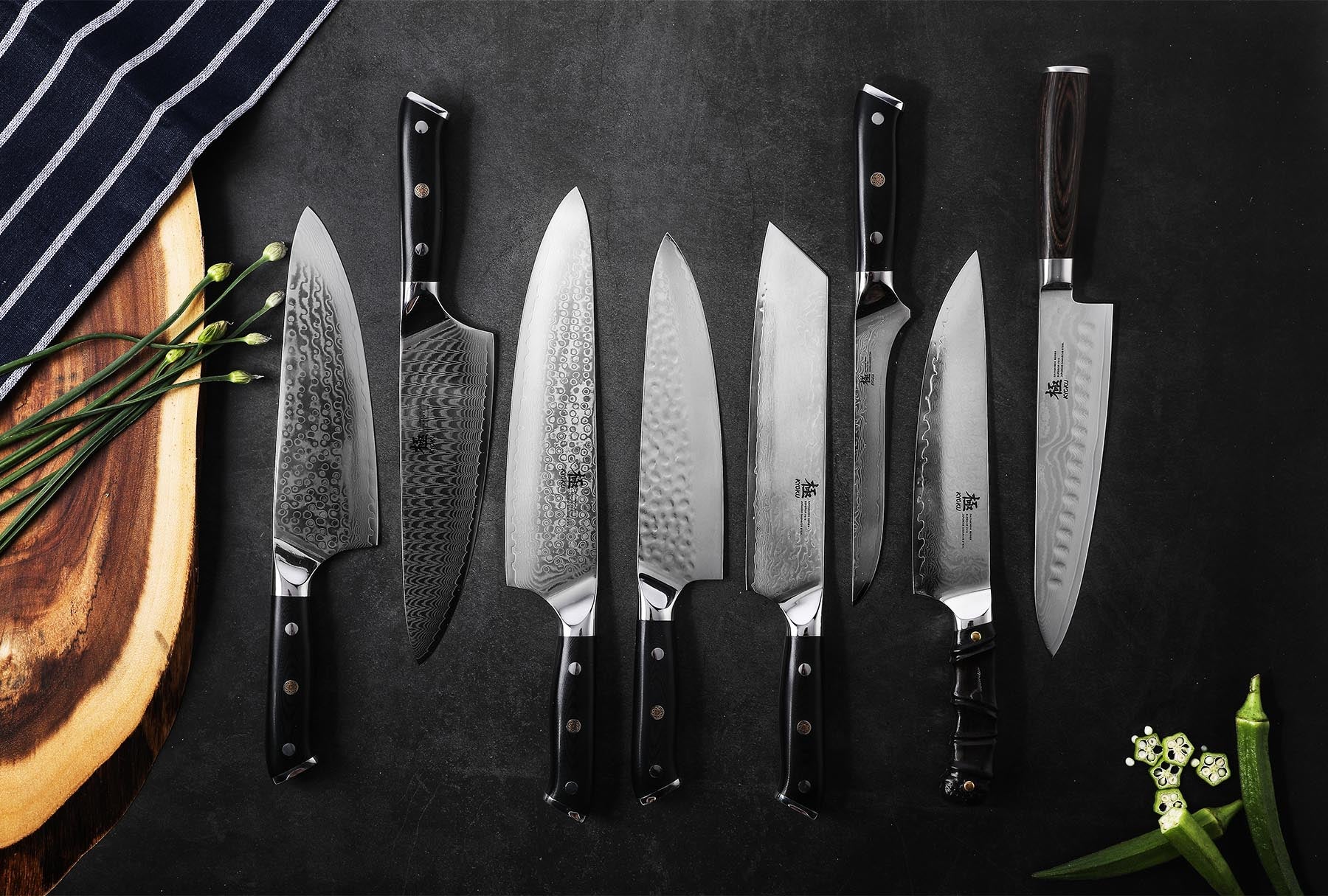Food Grade Mineral Oil
Description
Protect your cutting boards and kitchen knives with food-grade mineral oil! Kyoku's food-grade mineral oil is perfect for maintaining the quality of your wood cutting boards and kitchen knives. Keep them looking new and in top condition with our mineral oil.
Features
- Revitalize Your Kitchen: Kyoku’s food grade mineral oil ensures lasting charm for your kitchen essentials, restoring wood & stainless steel utensils and protecting marble countertops.
- Crack-Free Protection: Our mineral oil deeply hydrates and seals wooden surfaces, preventing dry-out, cracks, and warping while leaving a revitalized appearance with an extra shine.
- Food Safe Lubrication: This mineral oil is friendly for both food and skin, offering odorless, colorless, and tasteless food safe lubrication without leaving any oily residue. Experience clean, worry-free kitchen use.
- Versatile Surface Defense: Beyond wood, this mineral oil offers comprehensive protection for bamboo, marble, stainless steel, and more, safeguarding against rust and corrosion.
- Effortless Application: Packaged in a user-friendly 12 fl. oz. bottle, our mineral oil is easy to apply, requiring minimal effort for cost-effective and convenient kitchen maintenance.
Specifications
- Material: Mineral Oil, Plastic
- Volume: 12 fl. oz. (355 mL)
- Bottle Dimensions: 2.76 x 2.76 x 5.5 in. (70x70x140 mm)
- Net Weight: 0.84 lb. (380 g)
FREQUENTLY ASKED QUESTIONS
What is a chef's knife?
A chef's knife is your kitchen's multi-tool, designed to tackle a variety of tasks like slicing, dicing, and chopping. Its pointed tip and curved edge make it perfect for precise cuts and effortless rocking motions.
How do I choose the right chef's knife?
Consider the blade length, material, and handle comfort. An 8-inch stainless steel knife is a great starting point. Think about the types of food you usually prepare and how the knife feels in your hand.
What makes Damascus steel chef's knives special?
Damascus steel knives stand out for their exceptional sharpness, durability, and beautiful patterned design. Made from layers of steel, they hold their edge well and are favored by many professionals and cooking enthusiasts.
Can I use a chef's knife for both meat and vegetables?
Absolutely! That's the beauty of a chef's knife. It's versatile enough to handle both meat and vegetables, making it a true kitchen essential.
How should I care for my chef's knife?
Treat your knife with care! Hand wash it with mild soap, dry it immediately, and store it in a knife block or on a magnetic strip. Sharpen it regularly to keep it in top shape and avoid using it on hard surfaces.
What's the difference between a chef's knife and a Santoku knife?
Both are versatile, but a chef's knife has a curved blade for rocking motions, while a Santoku knife has a straighter edge and thinner blade for precise slicing. Choose the one that suits your cutting style best.
Why do professionals love carbon steel chef's knives?
Carbon steel knives are incredibly sharp and easy to sharpen, making them a favorite among chefs. Just remember they need a little extra care to prevent rust.
KYOKU SPIRITS
Kyoku draws from the samurai's legacy, creating affordable high-end Japanese cutlery for chefs and home cooks worldwide with a passion for culinary creativity.
Blog posts
“Coarsely Chopped” and Why It Matters in Your Kitchen
This blog explains what “coarse chopped” means and how it differs from "finely chopped," and how you can use it in your kitchen? Explore coarsely chopped ingredients like coarse chopped cabbage, pecans and broccoli.
How to Cook Pumpkin for Dogs with 7 Easy Ways
Discover 7 easy ways to cook pumpkin for dogs, boosting their health with nutritious homemade meals. Learn expert tips and knife skills for perfect preparation.
5 Best Ways to Cut Vegetables
This blog explains five different ways to cut vegetables. From slicing to chopping to julienne cuts, it explains the five vegetable cutting methods to choose from, which yield different results in terms of look, taste, and cooking requirements.
For soups, for example, you want bigger vegetable pieces, so you go for chopping. For spring rolls, you’d want fine strips, so you must use the julienne cut. Then there are also slice cuts, mince cuts, and dice cuts, which give you different textures, cooking times, and presentations.

